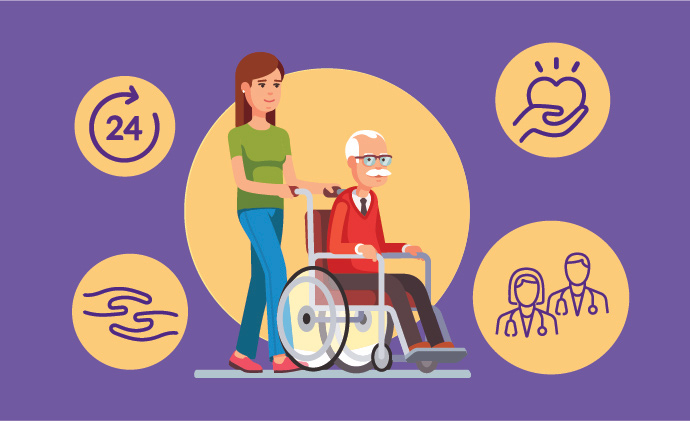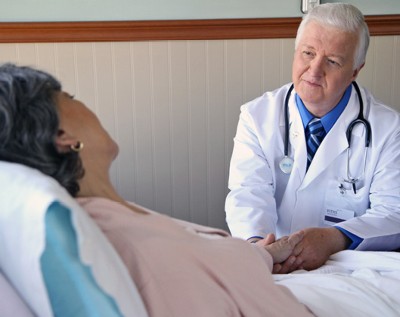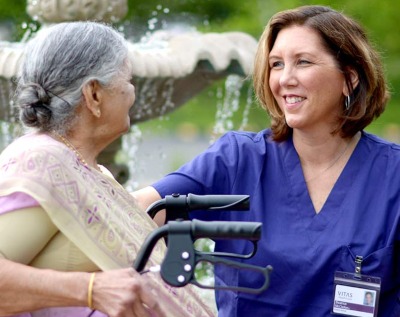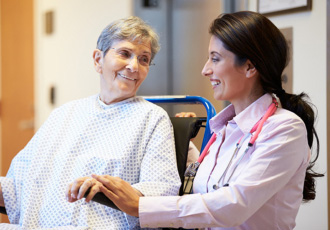By Ileana Leyva, MD, Regional Medical Director, VITAS Healthcare
Two recent studies provide two key talking points for physicians and clinicians who refer their patients to those of us who specialize in end-of-life care:
- First, 2019 and 2020 data shows that hospice care provides positive, measurable benefits for patients and caregivers, most notably improved symptom management, fewer hospitalizations/emergency department visits, and lower overall healthcare costs for patients, accompanied by greater satisfaction with care, fewer caregiver burdens, and a heightened ability among caregivers to move on with life after a loved one’s death.
- Beyond the data, the studies also confirm what we know firsthand about the reassuring value of hospice’s ability to build confidence in the “real” caregivers—the wives, husbands, daughters, sons, sisters, brothers, and trusted friends who are often thrust into the hospice caregiving role.
Often without medical training, these caregivers change the course of their own lives to care for someone special, someone who means a lot to them, someone who will soon be gone. One of the most profound elements of our job is sharing knowledge with these non-medical caregivers who have limited exposure to advanced illness, the dying process, and death.
Our experience is steeped in years of end-of-life care, patient-family interactions, and research. We know how advanced illnesses play out. We also know that the reality of death and dying is far different than the unrealistic plot lines caregivers are likely to encounter on “Grey’s Anatomy” or elsewhere in popular culture.
The Power of ‘Anticipatory Guidance’
The two featured studies from Israel and Australia validate the benefits of what I call “anticipatory guidance,” the skill of hospice teams to educate and prepare caregivers for:
- Where they are currently in their loved one’s disease process
- What to look for
- What to anticipate
- What dying looks like
Caregivers identified 24/7 support and professionalism as the two most supportive elements of hospice care.
Anticipatory guidance is provided against a backdrop of what I call the “medicalization” of dying in the US, a phenomenon by which most Americans still pass away in hospitals, nursing homes, and acute-care facilities, despite patients’ overwhelming desire to die at home.

Unfamiliar with the dying process, caregivers can quickly become overwhelmed, anxious, and unsure. Hospice professionals can step in with specialized care and education to help them manage their loved ones’ symptoms and behaviors while continuing to function as a family unit.
For patients with cancer, for example, we can prepare caregivers for the physical decline they might witness over time. We can let them know that they will observe their loved one’s weight loss, muscle wasting, and weakness as cancer’s toll mounts.
For family members whose culture of “caring” is built around nutritious food and family meals, we can explain that swelling in their loved one’s hands or feet, or increased fluid in the lungs, are signs of a body that is increasingly unable to process food and liquids. We can guide them to alternative forms of nourishment near the end of life, including closeness, music, companionship, and gentle touch.
We can reassure spouses and children of patients with Alzheimer’s or dementia that the care they provide is the most loving thing they can do, even if their loved one no longer recognizes them or knows who they are.
It’s clear that burdens on hospice caregivers will always be present, and they will change as their loved one’s health progresses and declines. These studies confirm what hospice professionals do best: help caregivers understand, anticipate, and react to those changes with 24/7 support and confidence, allowing them to remain loving family members and friends first, and caregivers second.
In turn, our healthcare colleagues and non-hospice specialists can refer their advanced illness patients to hospice care in a timely manner, secure in the knowledge that patients and caregivers alike will experience the tangible benefits that come from embracing quality of life near the end of life.


